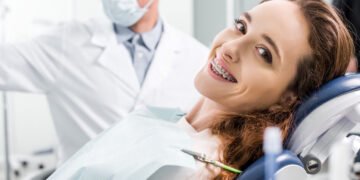Collagen is the structural element, made of protein, mostly found in the body’s various connective tissues, which helps to firm up the body structure. Collagen is the building block of cartilage, tendons, skin, bones and ligaments. Having more tension bearing capacity, it is responsible for elasticity of skin. That’s why, its deficiency causes wrinkles and ultimately aging.
Factors, which contribute in collagen degeneration
Collagen degenerates with the growing age. As you get older, the quality of collagen keeps on deteriorating. In this whole process of degeneration, genetics, environmental conditions, poor diet and smoking take part and contribute in defining the quality of collagen. This is the reason that most brands sold their beauty products under the shadow of collagen. Collagen plays a key role in making the skin youthful.
What Are the Benefits of Collagen for the Body?
Collagen provides form, rigidity, toughness, and texture to the tissues of the body. When the collagen level begins to decrease in the skin, wrinkles, stiffer tendons and ligaments, weaker muscles, joint pain, and even GI problems can be observed by the sufferer.
- Taking up to 10 grams (g) of collagen (peptides) / day can help improve elasticity, hydration, and collagen density in skin.
- Collagen has antioxidant properties, a review in the journal Antioxidants in February 2020 notes that taking hydrolyzed collagen can protect against UV-induced melasma, a skin problem indicated by patches of discoloration on the body.
- It helps to relieve joint pain, taking 5 g of collagen peptides daily for 12 weeks, helps to relieve pain experienced during any physical activity, because the proteins tend to repair the micro injuries in cartilage, and alleviate the inflammation.
- Collagen is beneficial for bones as well; it helps to regain the one density especially in post-menopausal women.
Ways to Increase Collagen Production
There are numerous ways to take collagen artificially, or increase the internal production of collagen.
- Artificial procedures include lasers, radiofrequency, ultrasound, micro needling, and fillers, which are performed in the dermatological clinic.
- Internal production can be enhanced by maintaining a healthy diet. Protein-rich foods are the great source of amino acids, which your body needs to produce collagen.
- To boost collagen production, eat a varied diet, like a combination of fruits, vegetables, whole grains, beans, lean meats, seafood, and nuts.
- Preserving what you have is much better than striving for more. So, first try to protect the collagen, you have, by wearing broad-spectrum sunscreen with at least SPF 30.
- Skin massage is the best therapy to induce collagen production. Make and follow a self-care routine.
- Alcohol consumption, smoking and sugar consumption are associated with collagen loss that leads to the formation of wrinkles in the forehead, between the brows, in the crow’s feet, and laugh lines.
Different Types of Collagen
Collagen powders and capsules Collagen powder is a protein, and when we take it orally, our body digests it, the same way as any other source of protein, like chicken or fish. But Collagen powder won’t affect directly on the skin and remove wrinkles.
Collagen creams and oils Pro-collagen creams in the market claim to reduce the signs of aging by producing a plumping effect. These contain synthetic collagen that locks moisture into skin, not a reliable solution.
Liquid Drinking bone broth is a rich source of collagen, from animal bones. It is a dietary source of collagen, but it does not prove to have anti-aging benefits for the skin.










